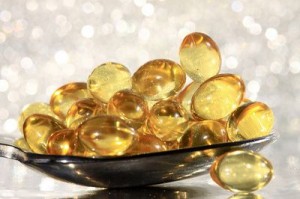To D or Not to (Vitamin D)? – Using Medical News Wisely
The year before last you couldn’t go more than one winter week without a headline or news anchor telling you that your winter blues may be due to vitamin D deficiency, at which point vitamin manufacturers and sellers everywhere littered your grocery store aisles with vitamin D bottles. We all took loads of vitamin D.
Jump two years forward. A recent study came out suggesting that vitamin D deficiency does not cause depression, but data implies it is the reverse. Depression causes vitamin D deficiency. Right.
There is a link between vitamin D and depression. That seems clear. What that link looks like, though, is still somewhat uncertain. This raises three important issues.
To read the full article please click here to go to the Huffington Post.
Huff Post is picking up my blog – so if you like it, please do say so on their site!
Science Isn’t Magic. (It’s better!) Doctors Aren’t Omnipotent. (They’re human!)
 Trust your health care providers, but know that they are neither omniscient nor infallible – they may thank you for your scrutiny
Trust your health care providers, but know that they are neither omniscient nor infallible – they may thank you for your scrutiny
The only thing more impressive than how much we know about biology – both in scale and content – is how much we don’t know. Yet, a pervasive thought exists that might have been borne out of the vaguely all-knowing feeling that Google gives us. The world thinks that science knows how the body works – entirely.
This gives me a chance to use my favorite neuroscience quote; “Our understanding of something as simple and straightforward as, say, looking at a tree, is not even clear,”said Dr. Eric Nestler, chairman of neuroscience at Mount Sinai Medical School.
Looking. At. A Tree.
The next giant medical discovery you read about, please remember that we do not know what it means for you to look outside and comprehend a tree.
Now, I am no naysayer of Western medicine and you’d be hard pressed to find someone with more respect for science. In my research as a medical writer I am constantly amazed by the leaps in modern science and medicine. Heck, I am still in awe of antibiotics; those things are great! (When used appropriately, obviously, as inappropriate usage is surely going to hasten the next plague.)
But this amazement is also held in check by a pretty thorough understanding how much – or how little – we know about medicine, drugs and biology. I have often had to write “the mechanism of action of this drug is unknown.” Even when the topic I was writing about was the mechanism of action.
We have some very good guesses at how some things work. And we solidly know how some other things work. This turns out to be enough to create some extremely effective interventions against many wicked diseases. But there are still several Grand Canyon-sized gaping holes in our knowledge of biology and medicine.
Why is this critical to how we think about healthcare?
Because, as I had written in a previous entry, we have handed over our health to physicians and to medicine in a blind act of trust that they can (and indeed that they should) figure it all out for us.
In doing this, we’ve removed a huge source of data about our own health. Namely – us.
Yes, trust your doctor. (Well, first research this person thoroughly…then do the trusting.) Yes, medical advances are amazing. And YES, we should do everything in our power to ensure that science research is ongoing because eventually – even in uphill battles like HIV vaccines – science can prevail.
BUT… no, we should not treat medicine like it is magical, infallible, or all-knowing. (Really, only Google maps is all-knowing – and seriously, what IS that?!) Science is the best thing going, but is still discovering new & exciting details about you.
It is not science’s fault. A human body is outrageously complex. And there are presently about 7 billion human bodies going on about life on this planet – each one a tiny bit different from the other. Sometimes that difference doesn’t matter much at all, and others it matters a great deal. Think anaphylactic shock from something as innocuous seeming as penicillin, for example. Most of us can take penicillin…but others have a life-threatening allergic reaction to this potentially life-saving antibiotic.
On the whole, we do have a good deal of biology in common with each other – even with many animals. But individual variance among we 7 billion is, well, significant.
This variation may mean a drug doesn’t work for you at all, or is the best thing for you, or causes an allergic reaction. This is part of the reason why it’s so critical to get back in touch with your body. To know your individual variations. Get to a point where you can hear your body talking to you, so that you trust yourself about yourself.
There’s another rather huge payoff, too. Stress reduction. According to stress physiologist Dr Robert Sapolsky, having a sense of control and ability to predict an outcome reduces your stress response. Over the long term, this may reduce your chances of suffering from a stress-related illness.
You get that sense of control over your body by understanding your body. You are a valuable, significant source of data that CONTRIBUTES to medical knowledge – not just someone who is affected BY it.
Do this and you can make your doctor a partner in your healthcare – not your guru. It just may improve your healthcare, and is bound to improve your health.
You Live in Your Body – Not Your Doctor
I don’t know when it happened, exactly. But at some point in the last few decades, we as a nation, collectively turned over our bodies to doctors and said “here, fix this and get back to me when you have it sorted out.”
It makes some sense. We need lawyers for legal things. Accountants for the undecipherable tax code, and so on. We outsource complex things to complexity experts. It’s a useful division of labor.
But outsourcing your health is not as uniformly advantageous. It works well in complex or emergency situations – and is the right thing to do in those cases – but not as well as in the ho-hum of everyday malaise.
And most disease is of the ho-hum variety. It is a slow creep toward a tipping point. Most disease is really quite boring. And that’s a good thing – you never want House to have to fix your health. Most people would have died before the 3rd commercial break.
But this also means that most of disease is in our day-to-day, ho-hum lifestyles. I could quote the statistics – but we’ve all seen them. Preventable heart disease, diabetes, lung cancer, etc. – all the heavy hitters are preventable or least modifiable …if we’d change our habits.
So why aren’t we changing our habits? We seem not to change until we are forced. And even then someone has to enter us into a TV contest and pay us to lose weight.
I am going to tackle this in a few parts. The next issue will be about the limits of science & medicine. But for now, I will focus one on facet of the patient’s role.
A useful analogy is your car. If your engine falls clean out of your car, you’d likely hire an expert to put it back. But surely, you fill your car with the right gas, get the oil changed and keep it running all without your car mechanic’s sign off? Your car has a dashboard full of indicators telling when to do all these things – it’s easy.
Your body has these indicators, too. But we have coated the dashboard in butter-laden Bolognese pasta, tubs of frosting, and fountains of soda pop. We can’t even see the indicator lights anymore – they are covered in nutella.
Even if indulgent desserts are not your vice, how many times this week alone have you “pushed through” to make a deadline…to endure some sort of pain when your body wanted rest…to appear tougher than you are? We let our speedometer read 145 mph and our engines overheat then we wonder why our cars wouldn’t go to sleep when we finally got it home from a 16 hour day?
Whatever we use to cover it up, the fact is that many of us have lost touch with our useful, gently calibrated blinking light dashboards. To compound the issue, biology is actually quite obliging on this point. If you fill your body with sugar every day – your homeostatic balance will reset. This is true of almost every physiological set point. If you are not a sugar eater – and you eat a whole chocolate bar, you are going to feel giddy, jumpy, possibly nauseous. But if you do that every day, your body will adjust. You will not feel giddiness anymore – but the damage to your cells will continue, unbeknownst to you. You have created “tolerance.” Tolerance decreases the sensitivity to the feedback from your body.
If you are suffering from obesity, type II diabetes, stress or any number of diseases that have accumulated slowly – you may not even remember what health feels like. And in that case – it is plenty difficult to be motivated to change. What are you trying to change to? You are used to how you feel, now. You are tolerant of it.
Last week I talked about numbing out. I believe that this is part of the problem here; we are numb to our own bodies. And in the numbness, we don’t get feedback at the right levels anymore, so we turn to doctors and ask them to tell us what the feedback may be. Doctors are here to help you when the problem has outpaced your skills, or has become complex and you need their expert care. They can help put you back on course – but once you are back on course, how you drive is up to you. And it’s worth taking that mantle back.
The good news is this. Just as biology reset your homeostasis in one direction – you can leverage biology to reset your homeostatic balance in the other direction.
The human body is the most precision instrument on our planet. It puts a Formula 1 Ferrari to shame. Use your health care providers like a pit stop crew, but remember you are the driver. You win the trophy at the end of the race, not the crew.
This issue is obviously more complex than I’ve outlined here – and I am happy to talk individually on it and how to reset your homeostasis. But I wanted to scratch the surface of what I think is an enormous problem we face in the West of hoping that there is a pill which will cure everything.
-Amy
How Numb Can We Get? …A lot Numb
 Last week the New England Journal of Medicine published an alarming fact. When drug makers tried to reformulate OxyContin so that it was harder to get “a high” from it – people did reduce their OxyContin usage.
Last week the New England Journal of Medicine published an alarming fact. When drug makers tried to reformulate OxyContin so that it was harder to get “a high” from it – people did reduce their OxyContin usage.
And then they switched to heroin.
When I read this I laughed. I mean I could not stop laughing for days. “Oh, the human condition, how we cannot be thwarted from our addictions!” I chuckled. I shared this story with others and made them laugh. It was a laugh fest.
I am not sure if my reaction could have been any less appropriate? Certainly no less compassionate. But I laughed because secretly I was comforted that everyone wants to avoid how painful reality can be – to become numb to it – just as much as I do.
What does this have to do with Chinese medicine and health? Everything.
You cannot have a healthy body without a healthy mind. When we try to numb out – even if it is not with something as noxious as heroin – our minds are not as healthy as they could be, and our bodies will follow suit.
Avoiding reality means cutting yourself off from all the things that we know combat stress – love, real joy, human connection, vulnerability – the list goes on. We KNOW these things improve our health and reduce our risks for all manner of disease. There are piles of neuroscience data to support this, courtesy of stress genius Robert Sapolsky…
Yet … we come home from the office and there is a cocktail in hand before our shoes are off… Or when we want to say “I love you, my god you are important to me” instead we say “Yeah, ok, see you later, maybe.” We avoid genuine intimacy more than Hollywood movies do.
How many people have sent you the link for Brené Brown’s TED talk on vulnerability? Posted the facebook link? Made you watch it in the office? All of them. We LOVE her talk. We agree with it, applaud and say – oh yes, she is wise! And then we turn around and hide from vulnerability so profoundly that we turn from a prescription drug to an illicit one. How badly do we want to avoid emotions? Pretty badly.
Well, all those emotions get stored in our bodies. And they aren’t there growing buckets of joy. They get bottled up and erupt out of us at inopportune times. They fester and create disharmony, qi stagnation, and much worse. We hide them and put a wedge between us and all the people we want to love and care about. They create an internal wedge that keeps us from knowing ourselves. And that wedge keeps us from having health. From giving health. And from being truly happy. And… if Brené Brown is to be believed – that wedge is also keeping us from being super successful!
So let’s give not being a numb a chance. There are many reasons we numb out. Only you know yours. But let’s metaphorically not turn to heroin when someone took away our OxyContin.
I’ll go first. No mind-numbing cocktails for me this week, no laughing about things that aren’t really funny, no intellectualizing emotions. I will let you know if my workouts and energy levels improve – not to mention my sleep, digestion and all the rest of the fun things that bodies do!
How will you reconnect?
p.s. If you want to watch the TED talk I mention – it’s here.
Exercise – You Need It.
Don’t take my word for it, take this doctor’s review of a fair amount of research. Watch this video— there is no better way to spend the next 10 minutes.

